10 Years Later, I Admit It: Black Clover Is One of Shonen Jump's Best Series in Ages
Yuki Tabata's Black Clover has reached a major milestone, 10 years of serialization, cementing its place as one of the longest-running series in the shōnen genre. First released on February 16, 2015, the series is now in its final phase, delivering the intense action fans have come to love. While its story follows the familiar narrative of a determined underdog striving for greatness, a staple of shōnen storytelling, it has often been criticized for not breaking new ground.
However, those who dismiss Black Clover for its lack of originality overlook what makes it truly special. Rather than simply following the established shōnen formula, the series refines and enhances its best aspects. It doesn’t just borrow from classics like Naruto, a series it’s often compared to, it builds upon them, pushing the genre forward in its own way. By embracing the strengths of its predecessors while adding its own unique twists, Black Clover has solidified itself as one of the finest Shōnen Jump series of the past decade.
Black Clover’s World-Building Is Rich, Meticulously Crafted, and Deeply Impactful
Unlike Naruto, Black Clover’s Societal Structure Plays a Far More Prominent Role
From the outset of Naruto, even though the series contains a vast world with five different nations, the world-building is disappointing because it generally revolves around shinobi and their displays of strength. The series is essentially grounded in telling a ninja story, where the stronger dominate, but it lacks many world-building aspects, such as transportation vehicles, instead relying on shinobi running from place to place. However, Black Clover from the start features Asta and Yuno in an orphanage, growing up in poverty, making their goal of becoming the Wizard King feel more prominent.

Black Clover Almost Made Naruto's Biggest Mistake, & Fans Should Be Thankful That It Didn't
Black Clover's decision not to follow Naruto's trend has saved the anime from meeting the same fate.
Naruto's dream of being Hokage, while admirable, feels less inspiring as he is constantly looked after by the Hokage. In contrast, Asta and Yuno’s dream is amplified when the societal structure is revealed, with the royal class at the top, wielding immense magical power. With Asta lacking any magical power, the crucial element that determines how far one can go, the stakes for following his dream are even higher, drawing fans deeper with the intrigue of how Asta will break societal norms and stand as a beacon of revolution.
As the narrative progresses and Asta achieves greater things despite his lack of magic, the very measure by which every human in their world is judged, the impact on viewers and characters alike grows significantly. It inspires them to follow their own revolutionary journeys. The stereotypical moral of the shonen genre, to inspire viewers, therefore feels much more impactful than it does in Naruto, even though Naruto has become the official tag for the "never give up" notion. While Black Clover does an exceptional job of building upon Naruto's basic morals, there is another significant trait of the series, excelling where even One Piece falls short.
Black Clover’s Protagonist Delivers What One Piece Promised With Luffy
Asta Consistently Embodies a Trait That Luffy Only Emphasized at the Beginning
Many shonen series follow the generic formula of showcasing the protagonist with the "chosen one" trope, exemplified by Naruto. However, One Piece initially subverts this by portraying Luffy without these typical traits. Instead, he is given an amusing ability that adds depth to his quirky character. The Gum-Gum Fruit does not initially imply any special significance, making Luffy's journey and his dedication to mastering this power feel like a break from the "chosen one" trope.
However, ever since the time skip, One Piece has gradually introduced elements that align Luffy with legendary predecessors like Roger. The "chosen one" trope is then solidified when Luffy becomes the Sun God: Nika, the warrior of liberation destined to bring revolution. In contrast, Black Clover consistently portrays Asta as someone without magical abilities, never granting him innate special powers. Instead, the series cleverly builds upon his lack of magic, further highlighting the thoughtfulness and uniqueness of Black Clover.
Asta, born without magic and regarded as entirely ordinary, wields the anti-magic sword, allowing him to nullify the magical abilities of his opponents. His perceived lack of specialty becomes his defining trait, reinforcing Black Clover's core moral theme. This is emphasized during Asta's first demonic transformation, which fully embraces his anti-magic abilities, making him special in his own way. This sentiment is reinforced by the Witch Queen's remark that having no special qualities makes Asta truly unique.

Black Clover Achieved Something One Piece Never Could, & It Proves Why The Former Series Deserves More Praise
Asta continued to show his exceptional trait, which Luffy lost as the series progressed.
Though some fans may argue that Asta being born without magic is itself a form of predestination, Black Clover masterfully incorporates the "chosen one" trope, evoking the idea that being born without special traits is a unique strength. This differs significantly from One Piece, which suddenly introduces Gear 5 and Sun God Nika, implying that Luffy was always on a destined path, despite the series initially presenting him as forging his own unique journey. While Black Clover excels in many areas where even the top shōnen series falls short, its greatest strength lies in its simplicity.
At Its Core, Black Clover Is a Staple of the Shōnen Genre
Black Clover’s Simplicity Makes It Both Great and Enjoyable
Though Asta has proven to be one of the most unique heroes in the Shōnen genre, the role he embodies and the journey he undertakes remain deeply rooted in shōnen tradition. On his path to greatness, Asta follows the classic protagonist archetype, forming friendships and rivalries, overcoming immense challenges, and inspiring those around him, including even his enemies, often leading to their redemption.
At its core, this simplicity defines Black Clover, staying true to the essence of a shōnen series. Black Clover thrives on intense action, with frequent transformations that symbolize character growth. With nearly four hundred chapters and an anime adaptation by one of the industry's most renowned studios, there is little reason to dismiss it as anything less than a solid shōnen series. In fact, Black Clover's ability to elevate the classic shōnen experience proves that it is one of Shōnen Jump's best offerings in ages and possibly one of the most memorable series the flagship will ever produce.
Source: @misopetha_menos on X.
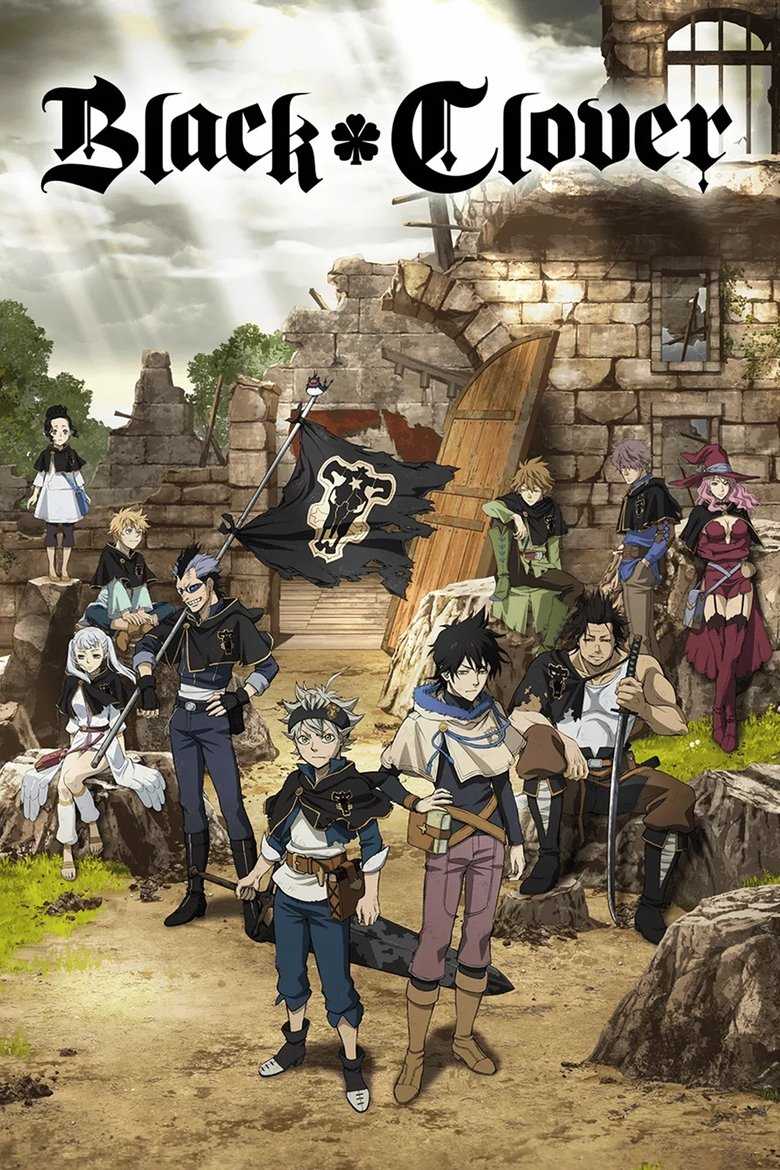
Black Clover
- Release Date
- 2017 - 2021
- Network
- TV Tokyo, TV Osaka, TV Aichi, TVh, TVQ, TSC
- Directors
- Matsuo Asami, Rokou Ogiwara, Tazumi Mukaiyama, Akira Shimizu, Fumio Maezono, Daisuke Chiba, Toshihiro Maeya, Yoshimitsu Tsuda, Toshiaki Kanbara, Takahiro Enokida, Yasumi Mikamoto, Kenichi Maejima, Chihiro Kumano, Naoki Horiuchi, Yoshino Miwa
- Writers
- Kanichi Kato, Mio Inoue, Masanao Akahoshi, Momoko Murakami, Kunihiko Okada
- Franchise(s)
- Black Clover
Cast
 Gakuto KajiwaraAsta (voice)
Gakuto KajiwaraAsta (voice) Nobunaga ShimazakiYuno (voice)
Nobunaga ShimazakiYuno (voice)
Black Clover, released in 2017, follows orphans Asta and Yuno who aspire to become the Wizard King in a world where magic is paramount. Despite Asta's lack of powers, their journey unfolds as they receive their grimoires and embark on individual paths towards their ultimate goal.
- Main Genre
- Animation
- Streaming Service(s)
- Crunchyroll, Hulu, Netflix

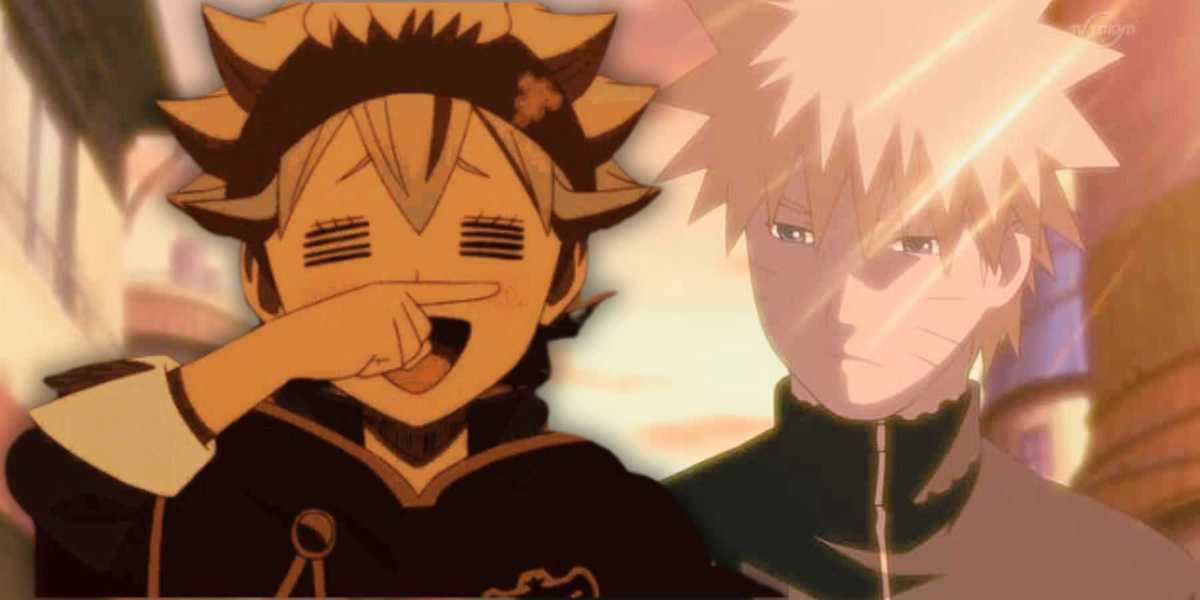



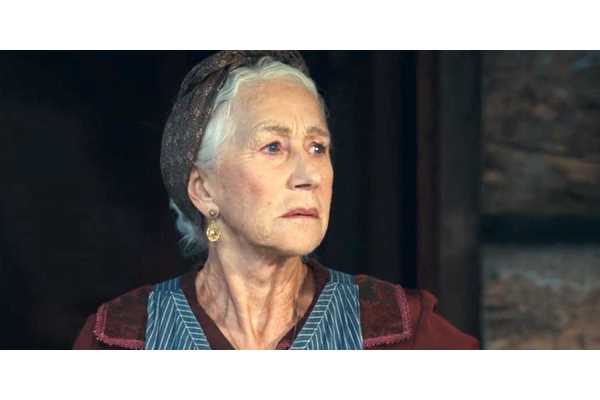

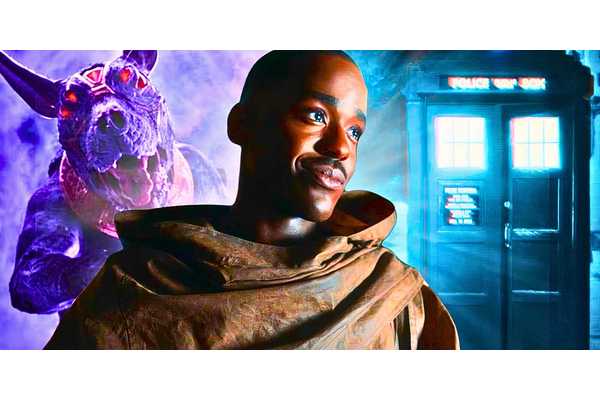
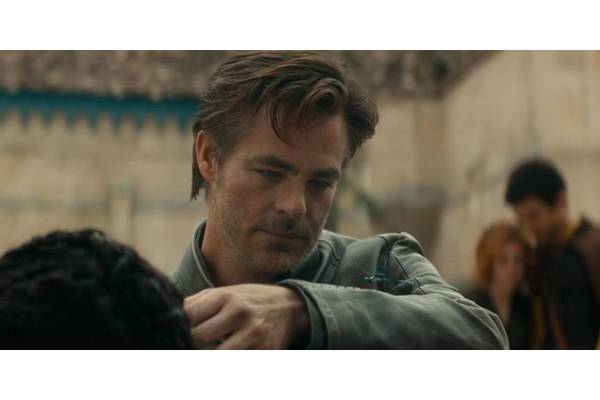

Your comment has not been saved